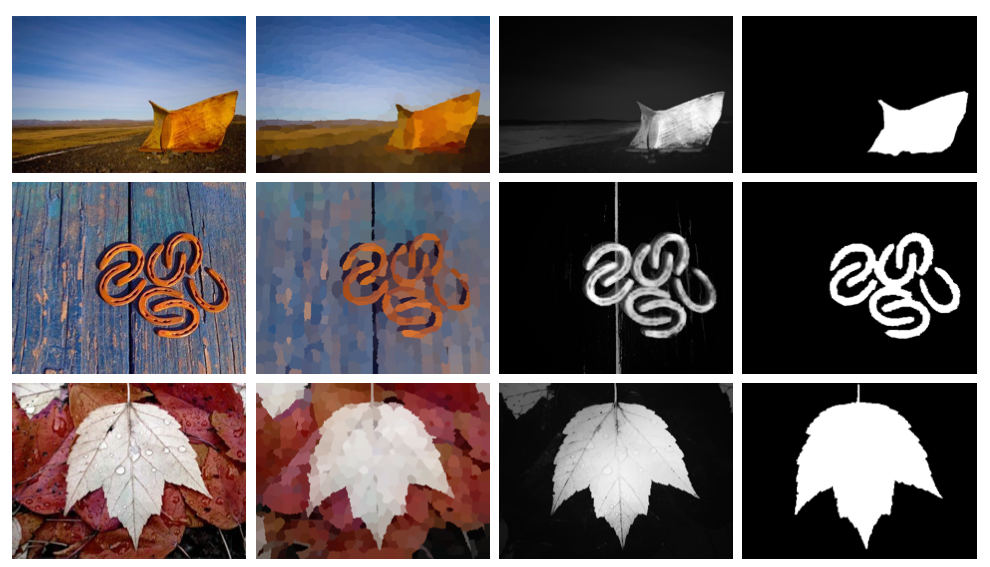Saliency Filters: Contrast Based Filtering for Salient Region Detection
In this paper, we reconsider some of the design choices of previous methods and propose a conceptually clear and intuitive algorithm for contrast-based saliency estimation.
June 18, 2012
IEEE Conference on Computer Vision Pattern Recognition (CVPR) 2012
Authors
Federico Perazzi (Disney Research)
Philip Krähenbühl (Stanford University)
Yael Pritch (Disney Research)
Alexander Sorkine-Hornung (Disney Research)
Saliency Filters: Contrast Based Filtering for Salient Region Detection
Saliency Filters- Contrast Based Filtering for Salient Region Detection-Image Saliency estimation has become a valuable tool in image processing. Yet, existing approaches exhibit considerable variation in methodology, and it is often difficult to attribute improvements in result quality to specific algorithm properties. In this paper, we reconsider some of the design choices of previous methods and propose a conceptually clear and intuitive algorithm for contrast-based saliency estimation. Our algorithm consists of four basic steps. First, our method decomposes a given image into compact, perceptually homogeneous elements that abstract unnecessary detail. Based on this abstraction we compute two measures of contrast that rate the uniqueness and the spatial distribution of these elements. From the element contrast, we then derive a saliency measure that produces a pixel-accurate saliency map which uniformly covers the objects of interest and consistently separates fore- and background. We show that the complete contrast and saliency estimation can be formulated in a unified way using high dimensional Gaussian filters. This contributes to the conceptual simplicity of our method and lends itself to a highly efficient implementation with linear complexity. In a detailed experimental evaluation, we analyze the contribution of each individual feature and show that our method outperforms all state-of-the-art approaches.

